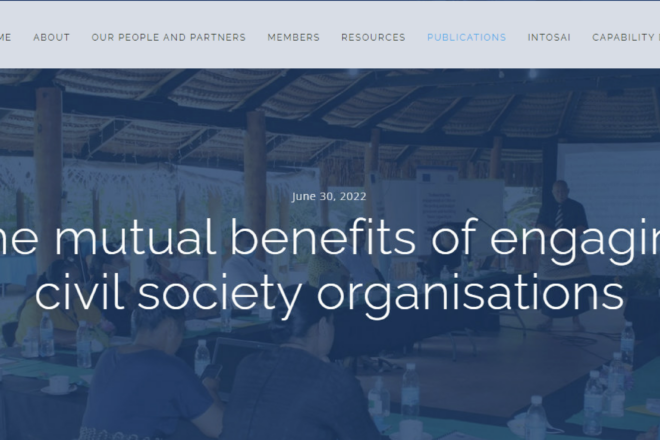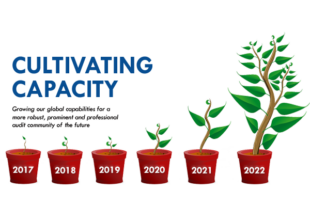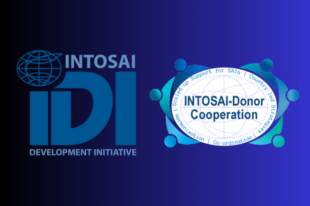CSO Engagement a New Opportunity for Many Pacific Island SAIs: PASAI Stakeholder Engagement

Author: Luke Eaton, Communications Advisor/Editor, PASAI
Over three days in July 2022, we, the Pacific Association of Supreme Audit Institutions (PASAI), delivered a workshop called Effective Stakeholder Engagement attended by staff from 10 Pacific Island public audit offices.
During the workshop, we launched a stakeholder engagement toolkit. The toolkit outlines good practice for communicating with the three branches of government as well as citizens and civil society organisations (CSOs).
It includes procedures and templates for communicating with each of these stakeholder groups. In the case of citizens and CSOs, there is a template audit staff can use to summarise an audit report into a single page within four subheadings.
The toolkit also includes a presentation template for audit staff to use when talking about audit findings and recommendations to CSOs. The presentation suggests to CSOs that they can, following the presentation:
- read, share, promote, quote and use the SAI’s report,
- encourage the auditee to implement report recommendations,
- use their networks and grassroots connections to find out if the audited entity is implementing report recommendations, and
- potentially provide feedback on implementation.
We know that actively engaging CSOs is new to many SAIs in the Pacific. For that reason the presentation also includes an overview of the SAI’s role in public finance management (PFM) and outlines the importance of SAI independence.
In a recent blog post[1] we outlined six opportunities in the audit cycle for SAIs to engage CSOs in a mutually beneficial way. Perhaps one of the more obvious opportunities is at the reporting phase, when SAIs can simply produce citizen-friendly audit report summaries and/or deliver presentations to CSOs on their audit findings.
Having spent decades operating under less than favourable conditions, it’s not surprising that few Pacific SAIs have a long history of robust collaboration with CSOs. In fact, drafting a citizen-friendly audit report summary is a new experience to many of them. So, we devoted significant time in the workshop making a compelling case for publishing audit summaries (the why), showed examples of good ones (the what) and explained the process involved in drafting them (the how).
We covered some plain language basics and had a guest presenter from the Victoria Auditor-General’s Office explain the way they create engaging material from their audits.
We required course participants to collaborate with their colleagues and draft a summary of a publicly available report of their choice. All 10 public audit offices submitted a summary applying workshop learnings and presented these summaries to all other course participants. Course facilitators provided immediate, constructive feedback on these submissions.
We also arranged for workshop participants to hear from the Chair of the Civil Society Forum of Tonga, who explained CSOs are keen to know more about PFM systems.
The Deputy Auditor-General of Tonga relayed his recent experience of describing his SAI’s role in Tonga’s PFM at a public forum for CSOs that was also livestreamed and broadcast on local radio. We designed the presentation template we included as part of the workshop toolkit so our SAIs could customise it to meet the needs of a similar type of event.
We recognise many Pacific SAIs face challenges that would be unheard of in other regions of the world. Some offices are prevented from engaging in public discussion about audits for months or years by, for example, lengthy delays in tabling reports in the legislature. Others have few media outlets through which they can disseminate their findings. And certain countries have significant segments of the population whose circumstances would prevent them from ever knowing about an audit report if all the SAI did was to publish it online.
For some SAIs in the Pacific, stakeholder engagement may, in practicality, involve travelling by small boat to remote islands and explaining audits in languages other than English to village chiefs or assemblies of elders (known in Tuvalu, for example, as Falekaupule). Having provided technical assistance on SAI communication strategies, we know this is the kind of activity some SAIs aspire to do.
Through workshops like this one, we are helping SAIs engage more effectively with CSOs, building their capabilities and giving them some of the tools to do so. We encourage this engagement so SAIs can maximise the impact of their work, arguing it will likely be CSOs who are the ones relentlessly advocating for positive changes based on audit recommendations.
Once these relationships have been established and CSOs are more familiar with the role of their local public audit office, we hope to see greater engagement, including with active participation in audit planning and monitoring of implementation.
We think CSOs in the Pacific have the potential to be among our SAIs most vocal allies and beneficiaries of their audit work.
[1] The mutual benefits of engaging civil society organisations





